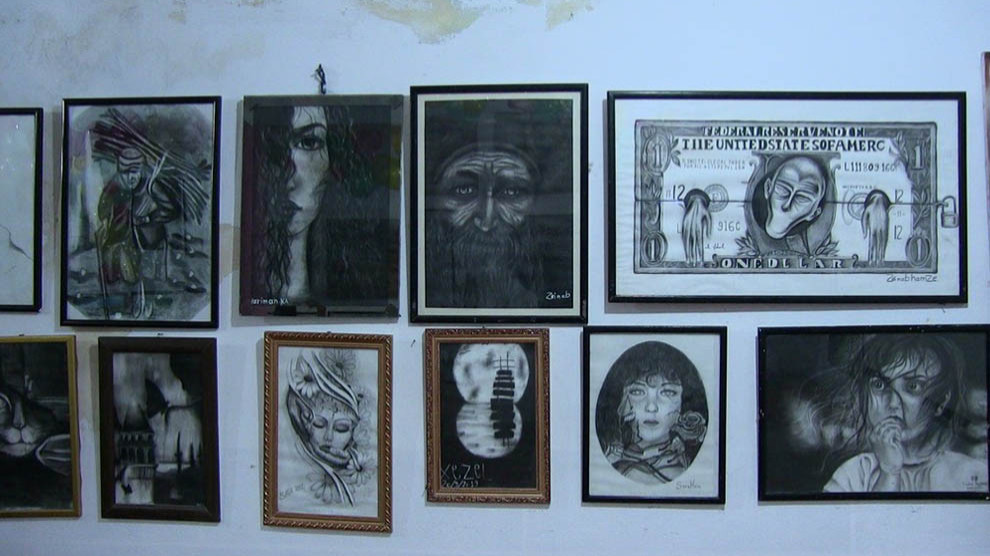Art exhibition by the Syrian youth movement in Sheikh Maqsoud
The Revolutionary Youth Movement of Syria displays art of young people in Sheikh Maqsoud.
The Revolutionary Youth Movement of Syria displays art of young people in Sheikh Maqsoud.

The Revolutionary Youth Movement of Syria displays paintings of young artists in Sheikh Maqsoud (Şêxmeqsûd), one of the self-governing Kurdish districts in the North Syrian metropolis Aleppo. In the exhibition, the youth movement brings scenes from the war and resistance in Rojava to life, linking the recent past with the present.
The opening in the premises of the youth movement was attended by many activists and residents of the resistance quarter Sheikh Maqsoud as well as representatives of civil society. At the opening of the exhibition, an analysis of the PKK leader Abdulah Öcalan about the role of Northern Syria in the Kurdish liberation struggle was shown on a screen.

Öcalan lived in exile in Syria for almost 20 years. He is the architect of the model of democratic confederalism, the political model of an equal coexistence of different population groups, in which people, regardless of their origins, learn that they do not need a state to regulate their own affairs and can administer themselves beyond state power and violence. Despite ISIS terror, a jihadist corridor and wars of aggression by a NATO country, Rojava continues to defend this alternative.
Activist Bêrîvan Îbiş explained that the youth movement's executive committee has set itself the goal of regularly organizing events such as the art exhibition. "On the one hand, we want to strengthen the morale of the youth and especially students. On the other hand, we want to encourage young people to engage with all areas of art."

Sheikh Maqsoud
When in 1915, in the course of the genocide of the Armenian people by the Ottoman Empire, countless people were rounded up and sent on death marches over impassable mountains towards Aleppo, Sheikh Maqsoud became a safe haven for the survivors of the young Turkish atrocities. Just as the place offered its protection to the Armenians at that time, Sheikh Maqsoud has been a place of refuge for the Arab, Turkmen, Aramaic, Assyrian and Armenian people alongside the Kurds since the outbreak of the Syrian civil war and offers the people protection from the internal and external aggressors.
RELATED NEWS: